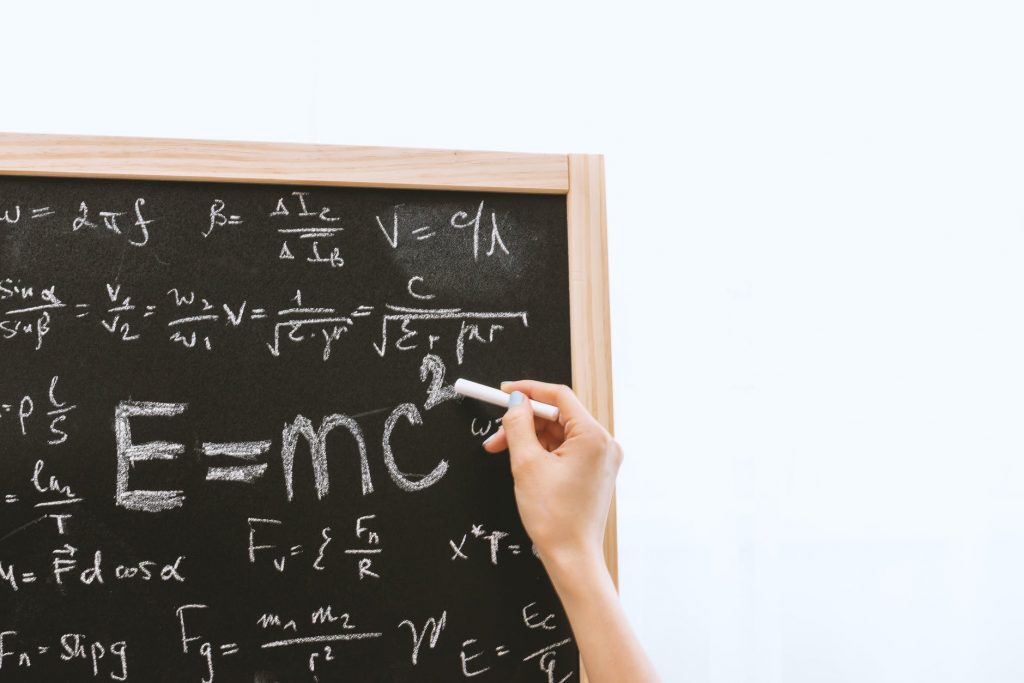Expert Physics Tutors and At-Home Convenience
EXPERT PHYSICS TUTORS, CONVENIENT AT-HOME VISITS, AND FREE CONSULTATIONS.
PRIVATE PAY TRAVELING TO YOUR NYC Metro Area Home:
New York City (NYC)
Manhattan
Brooklyn
Queens
Staten Island
Bronx
Long Island (including the Hamptons)
Westchester
New Jersey (NJ)
Connecticut (CT)


TESTIMONIALS


JOAO
Academic Coach

ETHAN
Mathematics and Mathematical Biology

SAMARA
Master’s Degree in Adolescent Special Education

STEFAN
Master’s in Medical Physics

CAITLIN K.
Doctoral Candidate

ERIN
Earth and Space Science

JACQUESE
Literacy Specialist
**Guarantee: It’s critical that whoever receives our tutoring services connects with the specialist, the specialist has expertise in the area of need, and is available to travel to you. If you are not 100% satisfied with our services, such as college physics tutors near me, we are 100% committed to finding you the right professional.
What Is Physics?
What Is Physics?
Physics is important as we understand and explore the world around us, the world within us, and the world beyond us. It is one of the most fundamental fields of study in science.
Concepts like relativity and string theory in physics stretch our imaginations. It leads to groundbreaking discoveries and innovations that transform our lives—from finding cures to diseases like cancer to the creation of renewable energy solutions.
THE MAP OF PHYSICS
When learning about and studying physics, we place a strong emphasis on energy, which is one of the fundamental elements of science. Matter and energy are studied separately and together in physics.
Physics may also be described as the science of nature or natural objects, which deals with the laws and properties of matter as well as the forces that affect them. Physics also focuses on the forces that influence gravity, heat, light, magnetism, and electricity.

Physics Orientation
Physics is more complex than other sciences because it incorporates elements from other disciplines such as biology and chemistry. It incorporates many concepts from other natural sciences in order to comprehend the fundamental principles of the universe. Physics-related phenomena (such as energy conservation) are common to all material systems as a result of this overlap.
Since biology, chemistry, geology, material science, medicine, and engineering all deal with processes that follow physics rules, physics is often referred to as a “fundamental science.” Consider how in chemistry, the science of matter that examines atoms and molecules, uses quantum mechanics, thermodynamics, and electromagnetism to provide chemical substances.
Here are some helpful lecture videos with hands-on, interactive problem solving for all levels of science for ages 10 and up to master essential skills.
Are Physics and Math Connected?
Physics and mathematics are inextricably linked because mathematics provides the conceptual framework through which physical laws can be formulated and their predictions quantified. Mathematical symbols and formulas are used to express several physics concepts, models, and theories.
The main distinction between physics and arithmetic is that, in the end, physics is concerned with the representations of the fabric universe. Math, on the other hand, is based on abstract logical patterns that can transcend the essential world.
Since physics is concerned with the fabric universe, it uses the form of observation or experimentation to test its theories. In theory, it would seem relatively easy to tell where physics ends and arithmetic begins. However, such a clear distinction does not always exist. As a result, the gray areas between physics and arithmetic are sometimes referred to as “mathematical physics.”
Physics is also involved in both engineering and technology. In electrical engineering, for example, engineers study the practical application of electromagnetism. That’s why physics is often used in the construction of bridges or the creation of equipment, nuclear weapons, lasers, barometers, and other useful measuring instruments.

What Does a Physicist Do?
A physicist applies themselves to the invention and study of how energy and matter interact. Physicists usually conduct, investigate, and conclude solutions or theories in science. They also design scientific equipment, for instance, electron microscopes, particle accelerators, and lasers, which will be wont to perform experiments.
How Can Themba Tutors’ Private Physics Tutoring Help?
A private physics tutor can go over each class material and content with your child, focusing on areas that your child finds difficult to grasp. If he or she is having trouble understanding the laws of motion, our Themba Tutors physics tutors will take extra time going over the concepts and explaining it to them, making sure they understand the material in a way that fits their learning style.
At Themba Tutors, we look for the best ways to make difficult material more engaging and interesting for your child. As our physics tutors get to know your child better, they may change their methods of instruction to suit your child’s interests, personality, and skills. For students who are visual learners, our physics tutors will tailor the tutoring sessions to be more visually oriented. This adaptable and individualized approach to learning is one of the biggest advantages of private physics tutoring.
Below Is a List of Other Studies that Exist within the Science of Physics:
- Study of sound and sound waves.
- Study of space.
- Study of the physical properties of objects in space.
- Atomic Physics. Study of atoms, specifically the electron properties of the atom.
- Study of physics in living systems.
- Study of systems with a robust sensitivity to initial conditions so that a small change at the start quickly becomes major change within the system.
- Chemical Physics. Study of physics in chemical systems.
- Computational Physics. Application of numerical methods to unravel physical problems that a quantitative theory already exists.
- Study of the universe as an entire, including its origins and evolution.
- Cryophysics, Cryogenics, and Low-Temperature Physics. Study of physical properties in low-temperature situations, far below the melting point of water.
- Study of crystals and crystalline structures.
- Study of electrical and magnetic fields, which are two aspects of an equivalent phenomenon.
- Study of the flow of electrons, generally during a circuit.
- Fluid Dynamics and hydraulics. Study of the physical properties of “fluids,” specifically defined during this case to be liquids and gases.
- Study of the physical properties of the world.
- High Energy Physics. Study of physics in extremely high-energy systems, generally within high-energy physics.
- High-Pressure Physics. Study of physics in extremely high-pressure systems, generally associated with fluid dynamics.
- Laser Physics. Study of the physical properties of lasers.
- Mathematical Physics. Discipline during which rigorous mathematical methods are applied to solving problems associated with physics.
- Study of the motion of bodies during a frame of reference.
- Meteorology and Weather Physics. Physics of weather.
- Molecular Physics. Study of physical properties of molecules.
- Science of building circuits and machines from single molecules and atoms.
- Nuclear Physics. Study of the physical properties of the atomic nucleus.
- Optics and lightweight Physics. Study of the physical properties of sunshine.
- Particle Physics. Study of fundamental particles and, therefore, the forces of their interaction.
- Plasma Physics. Study of matter within the plasma phase.
- Quantum Electrodynamics. Study of how electrons and photons interact at the quantum mechanical level.
- Quantum Mechanics and physics. Study of science where the littlest discrete values, or quanta, of matter and energy, become relevant.
- Quantum Optics. Application of physics to light.
- Quantum theory. Application of physics to fields, including the elemental forces of the universe.
- Quantum Gravity. Therefore, applying physics to gravity and the unification of gravity with the opposite elementary particle interactions.
- Study of systems displaying the properties of Einstein’s theory of relativity, which generally involves moving at speeds very on the brink of the speed of sunshine.
- Statistical Mechanics. Study of huge systems by statistically expanding the knowledge of smaller systems.
- String Theory and Superstring Theory. Study of the idea that each one fundamental particle is vibrations of one-dimensional energy strings during a higher-dimensional universe.
- Physics of warmth.
Tutoring, Coaching, Learning Specialists, Academic Tutors Services
We have expertise in:
Students of all ages receive one-on-one tutoring in all instructional materials, test preparation, and executive function coaching as required. At Themba Tutors, we take the time to help students/clients understand their strengths and progress in areas where they need to improve. We offer personalized tools for each of our clients to help them become more aware of their individual needs as they work towards short-term goals. Improving these skills will benefit our students’/clients’ long-term plans.
- Online Tutoring/Coaching
- English, and English Language and Arts (ELA)
- Literature
- Reading (Grades 1-12, and College)
- College Application Essay
- Writing (School-Age, College, and Adult)
- Song, Poetry, and Creative Writing
- Handwriting Tutors
- Math (Grades 1 to 12, College, Adult)
- Pre-Algebra, Algebra I, and Algebra II
- Geometry
- Trigonometry
- Pre-Calculus and Calculus
- Statistics
- Math Word Problems
- Exeter Math
- Biology (High School Biology, and AP Biology)
- Chemistry
- Physics
- Earth Science
- History and Social Studies
- Psychology
- Foreign Languages
- Test Prep (SAT, GRE, SHSAT, ISEE/SSAT, ELA, Regents, TASC, MAP Growth, LOTE Test, GED Test)
- Graduate School & Ph.D. Application Consulting
- Executive Functioning Skills (Grades 4 to 12, college, and adult)
- Adult Dyslexia Tutoring
- Adult ADHD/ADD Coaching
- Study Skills/Test Taking Tutoring
- International Baccalaureate IB Tutors
- Homeschooling
- Digital Literacy
- Computer Science
- Engineering Design
- Python and JavaScript Computer Programming (Coding) Tutoring
- Machine Learning
- Data Analytics, and Data Science
Physics tutoring service that travels to you!
Free Consultation!
Call: (917) 382-8641, Text: (833) 565-2370
Email: [email protected]
(we respond to email right away!).
Our son started in a new high school, 100% remote, and was really struggling with Latin and Physics. I found Themba Tudors online and had an initial call with Craig, who was very knowledgeable, responsive, and found 2 amazing tutors for us. Both the Latin and the physics tutors were fantastic, connected with my son really well and helped him go from ‘failing’ grade to ‘honors’! I will for sure continue using (and recommending!) Themba Tutors. Thank you, C, K, and W!
-Carolina L.
Thank you so much for your time tonight – especially on such short notice! Emma said the lesson was extraordinarily helpful – she said, “I finally understand physics!” I can tell you are a great teacher!

